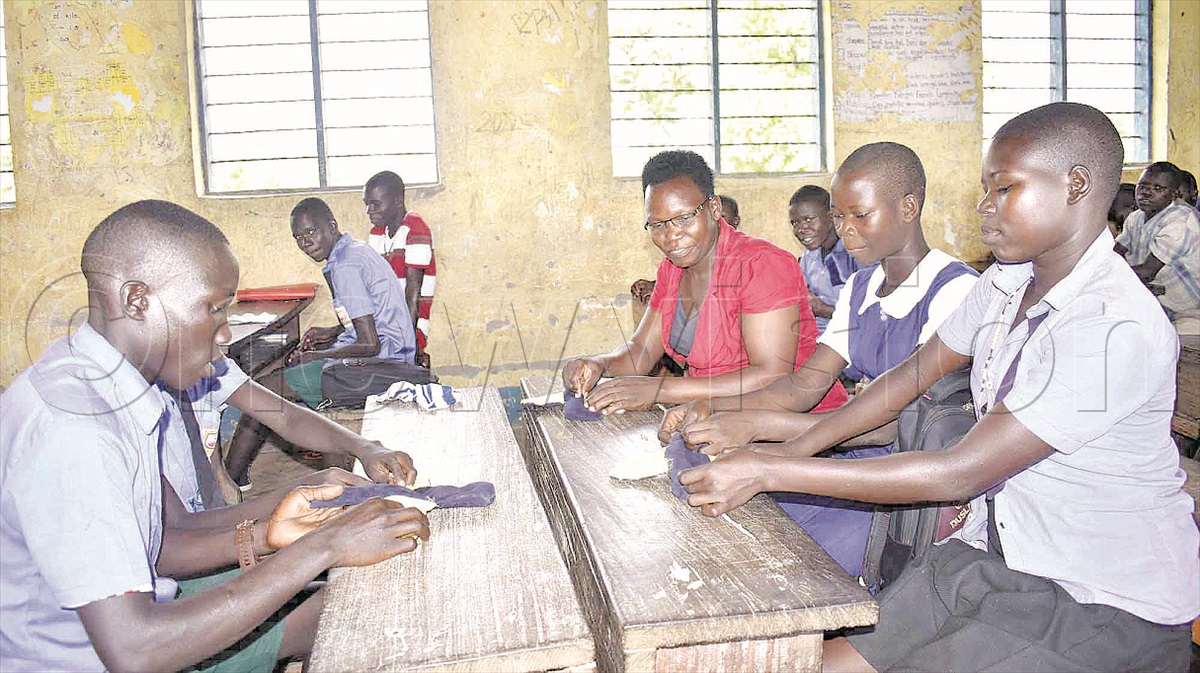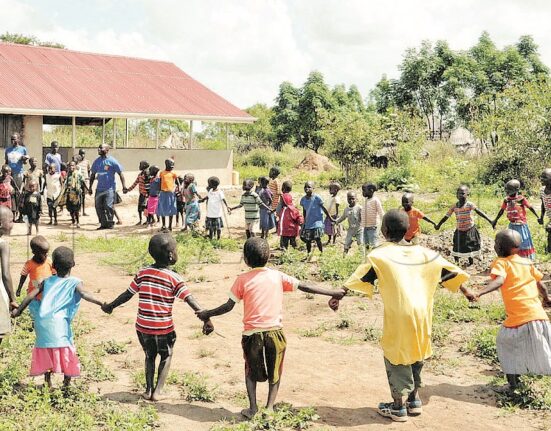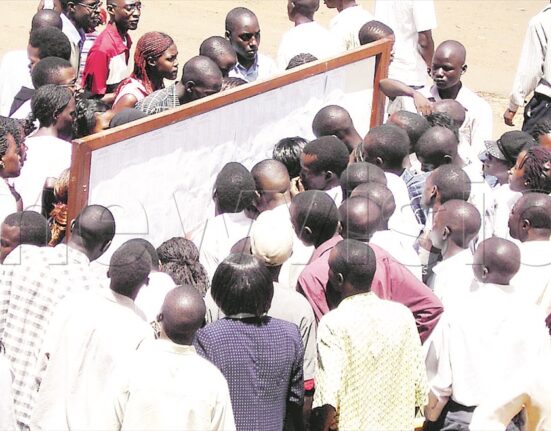(This article was first published in the New Vision on July 20, 2022)
By Andrew Masinde
In 2017, Harriet Kintho, a teacher of English and Social Studies, entered the Primary One classroom at Ramogi Primary School to deliver her lesson.
But as she wrote the content of her lesson on the blackboard for the pupils to copy into their exercise books, she realised that some of the learners did not write.
The pupils neither had exercise books nor pencils. So, throughout the lesson, they stared at the blackboard and at their peers who had books and pencils. It was not the first time Kintho was noticing that some pupils did not take notes during her lessons, for the same reason, yet she had not figured out how to help them.
However, on that day, she got an idea that she thought would be helpful. She suggested that the school, located in Kucwiny sub-county, Nebbi district, allows the children to grow vegetables on part of its land to raise money for their scholastic materials.
At the time, Kintho says she did not know of anyone who had ever grown vegetables in the area as everyone thought they did not thrive in this part of the country, which experiences long dry spells. However, that did not stop her from giving vegetable growing a try to ensure that every pupil in her class acquired a book and a pencil.
Kintho explains that some pupils skipped classes because they did not have pencils and books.
“I started the agriculture club, we could plant vegetables, such as okra and Sukuma wiki,” she says.
Five years later, Kintho, a Primary One class teacher, says the vegetable growing project has equipped many pupils with books and pencils every year.
“We harvest and sell the vegetables, then buy books and pencils for those children whose parents cannot afford,” she adds.
However, she adds that the project has not solved the problem altogether as proceeds from the vegetable sale are not sufficient to get every child books and pencils per term.
Kintho has also mobilised pupils to plant mango trees around the school to provide fruits for the learners while conserving the environment. She says she has also involved parents in the vegetable and mango growing projects so that the children have food at home.
Kintho, who is also the senior woman teacher of the school, which has a population of 1,200 pupils, says she devotes part of her time to sensitising the community about the value of educating for girls.
The school is located in a rural community, where girls are often seen as a source of bride wealth, according Kintho. As a result, several girls drop out of school before the end of each term due to early pregnancies, marriages and lack of sanitary pads to manage their menstruation cycles.
Kintho says she convinced seven girls who had babies during the COVID-19 lockdown to return to school. A 13-year-old girl, who gave birth last year, says it took Kintho a lot of time and effort to convince her parents to let her return to school this year.
“It took her (Kintho) three visits to our home to convince them (my parents) to allow me to return to school. But they (my parents) did not give me scholastic materials,” the girl, who is in Primary Five, said.
She says Kintho, who buys for her pens and books, has continued to convince her parents to encourage her carry on with education despite giving birth.
“The challenge has been getting other pupils to cope with having to study with girls who have become mothers. The biggest challenge for these girls is getting out of class to breastfeed. I have created a room for them to breastfeed and they also use it to read,” Kintho adds.

Sanitary Towels
Kintho says she formed “a school health club”, whose members meet every Wednesday to make reusable sanitary towels. The club, she explains, comprises 30 girls and 15 boys. Kintho regularly invites Plan International, an NGO, to train pupils about safety in school, implications of engaging in early and unsafe sex and the dangers of early marriages.
Isaac Ebong, the area programme manager for Plan International, says Kintho’s efforts moved the organisation to provide sanitary pads for the pupils and a sewing machine so that the pupils can make their own sanitary towels.
Mercy Rwoth, a member of the club, says she has learnt how to make sanitary towels.
“I cannot leave school because there are enough sanitary towels now. I give some of them (sanitary pads) to my friends, whose parents cannot buy pads for them,” she adds.
Kintho says she visited some households during the lockdown and urged parents to protect their girls against defilers. Kintho says she took with her sanitary towels for the girls.
Every morning, she conducts class physical education sessions for her class, which involve singing and exercises, such as running and playing football and netball.
Kintho advises teachers to have passion for their job and also build good relationships between their schools and communities that produce the learners.
What Others Say
William Opio, Chairperson School Management Committee
Kintho loves her job and children. Even though she conducts her classes under a tree, she does it with passion. Her class has over 200 pupils, but she does not complain about it. She only innovates by having many class monitors who support her to run the class.
James Gwok, District Inspector Of Schools, Nebbi
Kintho is a hardworking teacher and is dedicated to supporting the school and the community. The district appointed her to train women in the community in vegetable growing.
Edison Ruva, Deputy Headteacher
Kintho is hardworking and innovative. She introduced mango growing at the school yet the place looks like a desert. She mobilised pupils to water the trees and they are now enjoying the fruits.
Stella Mungungeyo, Parent
When I was invited to the school together with other women to take part in vegetable growing, I was hesitant because I had never seen anyone grow vegetables in this area. The soil is full of stones and the land is dry. I decided to try it out after seeing how well the school’s vegetable project was doing. I now have vegetables at home.
William Obedgili, Chairperson Parents-Teachers Association
Kintho visited households and urged parents to send girls who had had babies back to school. Some people believe that a girl’s education ends when she gives birth, but Kintho is changing this mindset and child mothers are attending school.
Kintho’s Academic Profile

- 2003: Completed primary education at Padwot Primary School, Nebbi district
- 2007: Completed O’level at Pakatha Seed Secondary School, Nebbi
- 2011: Graduated as aGrade Three teacher from Arua Core Primary Teachers’ College
- 2013 to date: Teacher at Ramogi Primary School.









Leave feedback about this